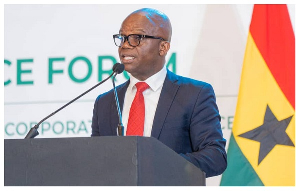The Member of Parliament (MP) for Nhyiaeso, Dr Stephen Amoah, has cautioned against treating politics as a means for personal enrichment, stressing that political leadership should primarily focus on service to the people.
Speaking in an interview on Starr FM, Dr Amoah likened politics to Christian discipleship, saying it requires self-sacrifice and a commitment to the collective good rather than personal gain.
“The moment you decide to do politics, you ask people to give you their mandate to serve them. It means you suffer. They will insult you, you will be poor, you will serve them because that’s what you said you were going to do,” he said.
While acknowledging that financial benefits may arise from political service, he emphasised that integrity and transparency must remain central to leadership.
“If in doing politics, the opportunity comes and it’s not corruption, I will take it. I’m also a human being. But I don’t have to be in politics because I see it as an enterprise,” he stated.
Show us the data – Dr Stephen Amoah challenges NDC’s economic growth claims
The Nhyiaeso MP criticised a trend he called the “EPP model”, Enterprise, Power and Prosperity, arguing that many political actors focus on these goals at the expense of their constituents.
“That’s what a lot of people in politics see: enterprise, power, and prosperity. Because of that, we don’t go beyond our personal interest to serve society,” he added.
“Apart from Christ, no one is perfect. But I think predominantly, our actions and inactions should be geared towards serving the people. Integrity is key. Honesty is key. Transparency is key. Make sure you don’t deceive people because one day, you’ll be judged,” he said.
You’ll suffer the moment you decide to go into politics… – Dr. Stephen Amoah (MP, Nhyiaeso)#GHOneNews #EIBNetwork#GHOneTV #NewsAlert #StarrFM @starr1035fm pic.twitter.com/7MALivubqh
— GHOne TV (@ghonetv) September 9, 2025
AM/SEA
Will Ghana pass the Anti-Witchcraft Bill? Find out in the latest episode of The Lowdown on GhanaWeb TV in this conversation with Amnesty International:



